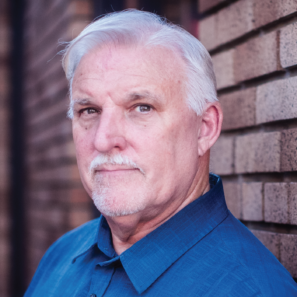By Joe Dallas
But if thought corrupts language, language can also corrupt thought.
– George Orwell
I’d just finished speaking at a Christian conference on sexual purity when a man approached me, eagerly shaking my hand. “What you said about being authentic was great!” he enthused. “I always try to do that. I’m a boy lover.”
I froze, not quite registering it. “A boy lover?” I finally stammered.
“I love boys. Some call me a pedophile. But I’m a Christian, and I know it would be a sin to give in to my feelings, so I never do. I’m celibate.”
After I regained my composure, we argued at length about the terms we use to self-identify. Obviously I was glad he resisted his temptations, but two things disturbed me: the way he identified himself by those temptations, and the positive spin he put on them—“boy lover”—which left me speechless.
In this age of recovery-oriented identities, people adopt labels describing problems. (“My name’s Barbara; I’m an alcoholic.” “My name’s Lee; I’m a sex addict.”) Unquestionably, there’s value in being honest about an area of weakness, so James tells us to confess our faults one to another (James 5:16), and Paul declared he kept a close watch on himself to avoid anything that might compromise his calling (1 Cor. 9:27).
But is it wise (much less, biblical) to categorize ourselves by a sinful tendency? Under what circumstances should we acknowledge those tendencies? And should the terms we apply to them ever be positive?
Nowhere are these questions more relevant to the modern church than in the area of sexuality. As the culture shifts toward condoning behaviors it once condemned, so does its language. Adulterous polygamy has been rechristened “polyamory,” a promiscuous male is now a “player,” and sex-change operations have morphed into “gender confirmation surgery.”
If we frown on society re-framing immorality in positive terms, we should be doubly concerned when believers do the same.
The Revoice Conference and the Growing Trends
Last July, the Revoice conference was held in St Louis, igniting considerable controversy among Evangelicals. The event billed itself as a gathering “supporting, encouraging, and empowering gay, lesbian, same-sex-attracted, and other gender and sexual minority Christians so they can flourish while observing the historic, Christian doctrine of marriage and sexuality.” The terms “gay Christian”, “lesbian Christian” and “sexual minority Christian” stand out as especially problematic.
Certainly, if a believer admits that she or he privately wrestles with same-sex attractions and refuses to yield to them, I hope we’d view that person as nothing less than a faithful disciple, persevering (as we all do) in the age-old struggle between the flesh and the spirit (Gal. 5:17).
But when desires of the flesh become a primary identifying characteristic, referred to in positive terms, much as one might refer to race or nationality, then shouldn’t red flags be raised?
Thankfully, as of this writing, few if any Christians self-identify with terms like boy lover, polyamory, or player. But while accurate terminology for child molestation, adultery, and promiscuity is intact within church circles, the term gay Christian is coming into more frequent use, the Revoice being one of many examples.
Other examples include the writings of Wesley Hill, Gregory Coles, and Nate Collins , all of whom identify themselves as gay, Christian, and celibate. They have, in other words, committed themselves to abstaining from homosexual behavior, but they retain, quite openly, the homosexual identity.
So by using the term “gay Christian,” growing numbers of believers impose a positive slant on what Scripture refers to only in the negative. When we adopt linguistic affirmatives for what are, in fact, biblical prohibitions, can positive re-identification of other sins be far behind?
As the late Francis Schaeffer noted, “Tell me what the world is saying today, and I’ll tell you what the church will be saying seven years from now.”
OF LABELS, LEGITIMIZATION, AND LICENSE
To me, the issue is more than academic. I repented of homosexual behavior in January of 1984. The homosexual orientation—an internal sexual attraction toward men—was something I couldn’t repent of, because, as an involuntary condition, it didn’t have an “off” switch.
Those attractions would continue to arise, and when they did, I needed to resist them. In the interest of doing so, and in making a clean break with my identity as a gay man, I moved to another county, found a church, hired a professional Christian counselor, and began investing in daily prayer, Bible study, regular worship with other believers, and deep friendships.
I didn’t consider myself a “gay Christian” during that transitional time, despite any lingering homosexual attractions I had. I was aware of the attractions, dealing with them as they arose, but they no longer defined me. Indeed, thirty-four years later, after thirty-one years of marriage and the fathering of two grown sons, I’m aware of the places or situations that could reawaken those desires, and for obvious reasons, I avoid them. So my refusal to see myself as a gay Christian was never a denial of the attractions themselves. Rather, it was a refusal to let them define me.
All of that put me in the same boat as any new creature in Christ. Scripture calls us to an awareness of the sin nature (Rom. 6–7), the temptations and responses it generates (Gal. 5:17), the mandate to resist (Rom. 6:12), the promise of strength to do so (1 Cor. 10:13), and the “glory to glory” transformative sanctification we experience (2 Cor. 3:18). We can thereby, with integrity, wear the “sinner” badge, as Paul did (1 Tim. 1:15), recognizing we always fall short (James 3:2) and, in this life, always will be both wrestling with and overcoming sinful impulses.
All of this can be done without advertising which impulses we’re overcoming. In limited situations—a support group for people wrestling with a life-dominating problem like addiction, for example—it makes sense to specify the problem. (James’s instruction cited earlier to “confess our faults” comes to mind here, an instruction we hardly can obey if we’re not honest about the
faults themselves.)
So the statement, “I’m Bob, and I’m an alcoholic,” has merit when Bob’s in a meeting focusing on alcoholism. When Bob’s in church, one hopes he wouldn’t feel compelled to always introduce himself the same way. After all, if I have Type-A blood, that’s relevant when I’m in the hospital; irrelevant most other places. It’s no dark secret, of course, since everyone assumes I have blood. But the specific type hardly matters.
Likewise, within the body of Christ, we’re all wrestling with some kind of sinful tendency. We assume that about each other without knowing, or needing to know, the actual temptations of someone next to us in the pew. The fact we’re sinners is no dark secret; we all struggle, we all know it. That “something” may be a common tendency or an uncommon one; a temptation we all share, or one only a few of us can relate to. The general struggle is universal; the specific type
hardly matters.
A Struggling Saint by Any Other Name is Still a Struggling Saint
But when it does matter—when a Christian who experiences same-sex desires chooses for whatever reason to acknowledge them—the way they’re acknowledged matters as well. That, too, is why the use of the term “gay Christian” is an error.
On the one hand, an area of weakness is no cause for shame, since we all experience cravings for what we know to be wrong, desires in conflict with our beliefs, but strong and persistent regardless. By and large, while we do pay attention to them, we don’t beat ourselves up
over them.
But we don’t refer to them with flattering lingo, either. We don’t call them gay, which implies they’re happy, cheerful things. Nor do we consider them morally neutral as we would consider our nationality or our sex. They’re neither good nor neutral, but regrettable, a reality of life in this fallen world from which we look forward to being finally and permanently freed when our mortal bodies put on immortality, and sin is once and forever swallowed up (1 Cor. 15:53–54).
The term gay Christian labels when labeling seems uncalled for. Having dealt with the issue myself, and having had the privilege of walking alongside many Christian men and women who have done the same, I’m more convinced than ever that homosexual is a word best used as an adjective (“I experience homosexual temptations”) rather than a noun (“I am a homosexual”). The result of the latter usage is labeling and limitation. The former offers a broader, more biblical self-view.
When the gay Christian label is applied, such labeling enhances legitimization. I’ve seen many believers with homosexual temptations begin re-framing those temptations, in their minds and conversations, re-categorizing them from sinful urges to primary identifiers, making it all that much easier eventually to default to them.
It also negates the transformative work so many of us who’ve repented of homosexuality have experienced, not only in our behavior and identity, but in our sexual desires as well. This is why the words of one Christian woman dealing with her own homosexuality are so apt:
“I found for myself that moving past gay identity was essential for living stably and contentedly according to my beliefs as a same-sex attracted Christian woman.…Abandoning gay identity doesn’t mean being in denial. It doesn’t mean “naming it and claiming it,” proclaiming that you’re “healed,” that you’re totally straight and happily heterosexual, while you’re still homosexually attracted. What it means is radically altering the role that the fact of your homosexual attractions plays in your thinking about yourself and your life.”
Whatever our unique struggles, we could do worse than to take a cue from her, remembering that the way we frame our experience directs our response to it.
“As a man thinketh in his heart, so is he”
(Prov. 23:7 KJV)



Comments
Add Comment